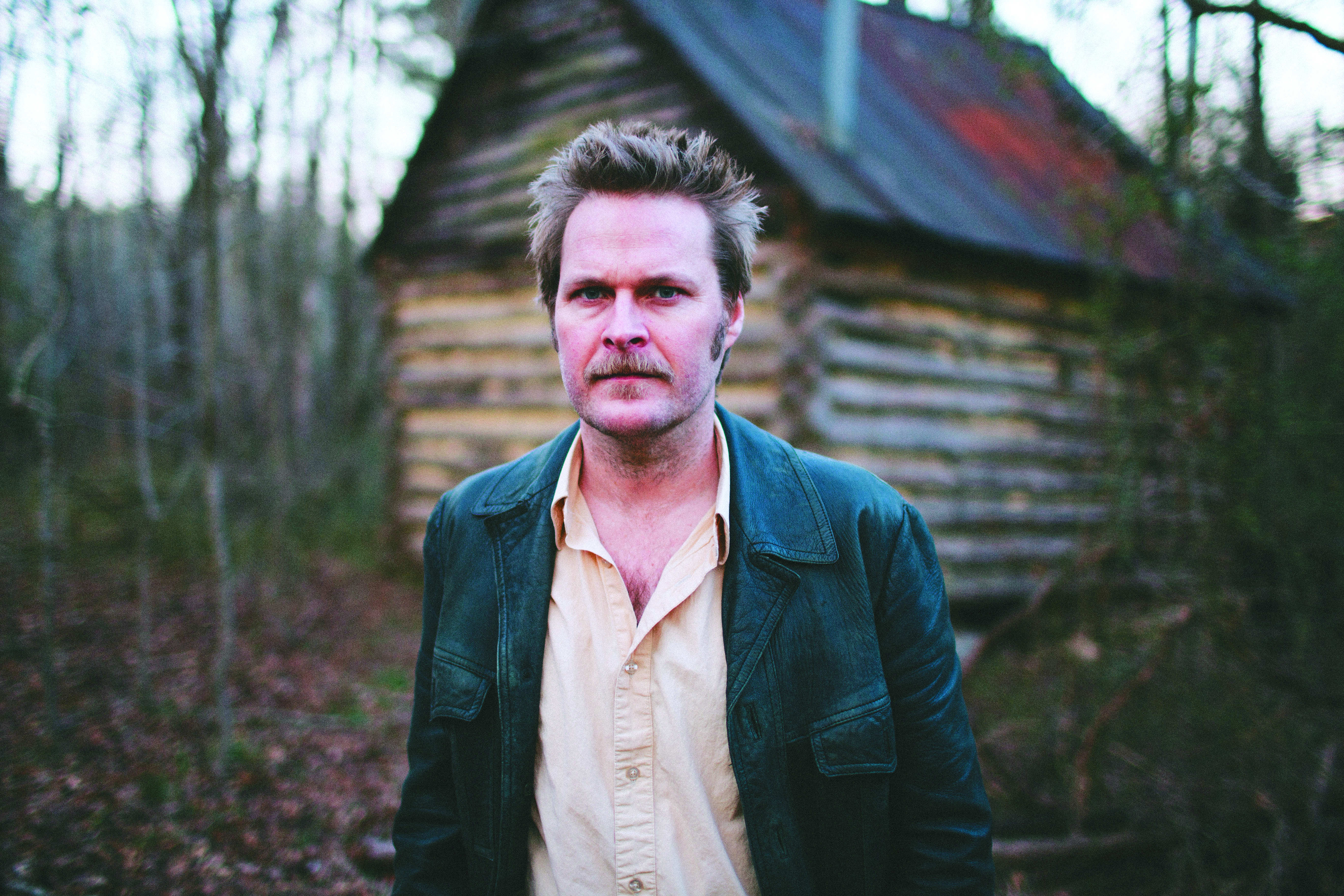In his fifth offering,
The Lateness of Dancers, North Carolina’s M.C. Taylor, who performs with Scott Hirsch as Hiss Golden Messenger, presents a wide spectrum of musics, from folk and barroom rock to traditional country. It’s a sweeping canvas upon which he paints seeking, searching lyricism about life, love, and family. Back in August at Pickathon, I sat on a pile of dirt with the California native and recent Merge records signee and we chatted about his punk period, working as a P.E. teacher, and his sense of home. (This interview has been edited for space constraints.)
SW:
How did you evolve as a musician?
Taylor: You grow and evolve with a subtle touch. When I started this band called the Court & Spark . . . I was coming out of noise and hardcore. The band that I had with Scott [Hirsch] was called Ex-Ignota, we made records for this label Ebullition. The big thing with us is that we were stoners, into Sonic Youth. We weren’t into the Dead yet . . . I was just learning how to play. We learned that there was a whole emotional palette that you could access. That was a time that we were hearing the first Tortoise record, The Sea and Cake—music by people [who] could really play, [and spent] a lot of time with their instruments. It was a period of turmoil. We needed to grow, we were only 18 . . . I was just starting to learn how to exist with an instrument in front of people. For me, that was so valuable. There are certain things that I still carry with me, like the DIY spirit.
[After that], we all dispersed. I moved back to my parent’s in Southern Cal. I was working as a P.E. teacher, if you can imagine that. That was not fun. I honestly cannot remember how I got that job, or how they hired me. At the time I had really long hair, and a really long beard. I don’t know the rules to any sports. That was a lonely time, a time that I was lost. I was really digging into the whole range of music, that’s when I started playing acoustic guitar a lot. I bought a banjo. I remember showing back up with my friends with long hair and a banjo. Scott was like, “What the hell?”
What is punk DIY ethics to you?
I can only speak in the perspective of music. Doing as much as I can. I understand how much labor goes into everything. If I am working with a record label now like Merge, I’m doing it because I’m comfortable with sacrificing whatever income to let them do the heavy lifting on that side. I’m always going to think that way. One question I ask myself: Could I do this myself? More and more these days, it’s not possible.
How are you handling the transition from having HGM as a personal project to it being a very public entity?
I’m trying to be realistic about what my obligations are. I won’t do more than a two-week stretch. It has to be productive. There has to be money to contribute to the family pot. It has to be worthwhile. I don’t love being on the road so much. My music is about home. I have to really remind myself. It’s easy to be seduced with a month of shows. Even now I have to be focused about what I can do. I’m lucky to have a crew around me that all know that we have to be really thoughtful about what we put together. Part of this journey of mine has been putting together a thoughtful group of people that are friends and are willing to work with my limitations.
What does success look like for you?
As I started Hiss Golden Messenger, no one was listening to what I was making, [but] I still felt value in what I was making. [My music] is a way to engage with the world in an emotional and visceral way, and [to me] success is gauged in that way. These records are so personal. I make these records for me and my family. The fact that other people are listening is amazing.
[It’s] the ability to interface with my own feelings, to deal with my demons in a productive way. You don’t need to be on the road six months a year to find that success. I have a full time job. I work for Duke University, the Center of Documentary Studies. It allows me to define success on a different level. I can say no to everything. It’s so liberating.
The turning point was Bad Debt. At the time I wasn’t thinking about making another record . . . I was writing these songs, but they were so personal. I didn’t even think my wife would hear them. I would put [my son] Elijah to sleep and I would record on this little tape recorder. It took two weeks to make. Wrote and recorded one song a day. I was basically done with my public life as a musician, that was an amazing experience. I had written a set of songs, thinking, “These songs I can stand behind. I don’t care if anyone hears them. I’ve finally hit a music that’s mine. I discovered a way of singing, playing guitar, something that’s mine.” In the midst of that process, I sent some of that to a buddy of mine in England who said, “This is a really intense collection of songs. This could be a record.” I said,“I think that you’re right.” They weren’t even demos. I scraped 500 bucks together, pressed 100, people all of a sudden . . . got enthusiastic. The more personal it is, the more universal it is. That’s why people thought it was compelling.
Tell me about home, about Durham.
It’s been very cosmic, the connections I’ve made. There’s a confluence of people doing amazing work. People aren’t competitive there. An amazing food scene that bleeds into the music scene, a lot of writers.
A fantasy day in Durham? I’d wake up, hang out with my kids, go to the farmers market. Listen to some music. Go play music with some people. It’s pretty no-frills. I’m a homebody. I’m an introvert—it doesn’t mean that I’m shy, ’cause I like to be around people. I continue to struggle to be Hiss Golden Messenger. Getting up on stage and entertain. It’s a job that I’m willing to learn.
music@seattleweekly.com
HISS GOLDEN MESSENGER With Phil Cook. Barboza, 925 E. Pike St., 709-9442, thebarboza.com. $12. 21 and over. 8 p.m. Thurs., Nov. 6.









